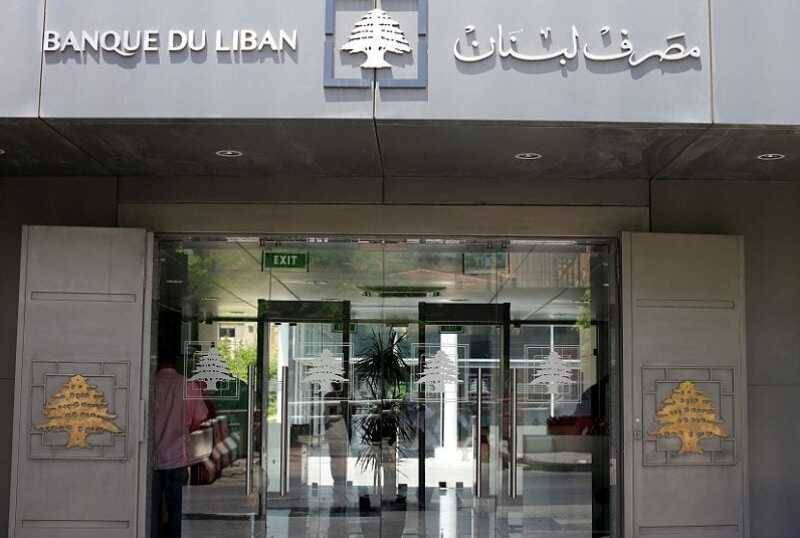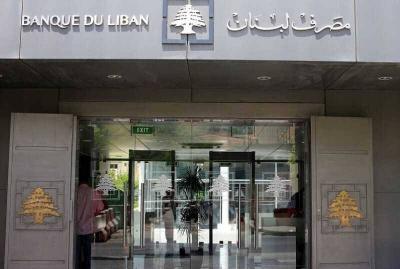The Lebanese banking sector and those concerned with financial and monetary affairs live in fear of the country's potential fall into the "gray list" according to the classification and standards of the Financial Action Task Force (FATF). There is an increasing concern about Lebanon being categorized among countries that require more oversight of their financial and banking systems, continuous auditing of the effectiveness of their law enforcement agencies, and their activities in combating money laundering and financing terrorism, as well as prosecuting corrupt individuals and putting an end to the culture of impunity for offenders.
Lebanon managed to avoid punishment from the group late last year and skillfully gained a six-month grace period from the Central Bank of Lebanon, which is nearing its end, conditional on the Lebanese government fulfilling its promises to implement necessary measures, apply relevant international standards and protocols, and restructure the financial system to serve both international demands and Lebanon's economic interests.
Today, the grace period has ended, along with the Financial Action Task Force's deadline for the Lebanese state to reactivate its financial and judicial institutions. Lebanon is once again at risk of being dropped onto the gray list. The remaining operations of the state have begun to avoid this bitter cup, with the acting Governor of the Central Bank, Wassim Mansouri, having previously taken steps to secure a conditional extension. Currently, he is not only trying to save Lebanon from falling onto the gray list but is also attempting to "buy time" again for a state that has become adept at wasting opportunities, time, and money, while being indifferent to the fate of its citizens.
While necessity once prompted the Financial Action Task Force to grant Lebanon a chance to recover, it does not necessarily follow that the atmosphere of leniency that prevailed before will govern the group's dealings with Lebanon in the future. The extension of deadlines depends on the progress made in reforming institutions, enforcing necessary changes to existing laws, and convincing the international community and experts of the plans and directions necessary to revive the financial and monetary system in line with the dynamics of modern economic and financial activities.
Mansouri's insistence on buying time again does not guarantee long-term success; his temporary success in convincing or softening the position of the Financial Action Task Force to delay any decision regarding Lebanon until the end of the year does not mean that "we will escape" if the state does not act and approve the urgently needed laws since the start of the crisis. The policy of buying time for a state that does not recognize that its fall onto the gray list means immediate execution for its banks and international financial relations, a loss of what little remains of its reputation and trust in its banks and financial system, and isolation from the global economic cycle, all resulting in confusion for trade, exports, and imports, unless the goal is to sacrifice the state at the hands of those conforming to political and economic projects unrelated to Lebanon's history and economy.
How did Lebanon manage to avoid falling onto the gray list? While all indicators and data from diplomatic channels of major countries suggested that the likelihood of placing Lebanon on the gray list this May was almost certain, "An-Nahar" learned that Lebanon will not be placed on the gray list in this meeting, though the risk remains for the future if stakeholders do not hasten to address the gaps that may place Lebanon in a position of danger.
A delegation from the Central Bank of Lebanon and the Special Investigation Commission will participate in the scheduled meetings in Manama at the end of the month, and "An-Nahar" confirmed that the classification regarding Lebanon will not be issued in these meetings; rather, it will be postponed to a later date, which could be next fall. The Central Bank and Special Investigation Commission are still working to ensure that Lebanon is spared from being listed on the gray list, emphasizing that, should Lebanon fail to fulfill the duties outlined in the previous report, the outcomes will be unsatisfactory.
Acting Governor Wassim Mansouri reiterated to "An-Nahar" the importance of collective efforts to maintain the current state and avoid Lebanon's listing on the gray list in the next meeting. He stated: "It is true that the Central Bank has accomplished many measures concerning cash usage control and reducing it through new payment methods and decreasing the cash mass, but the delay in resolving cases related to money laundering, the weakness of some legal foundations, the lack of commitment from the state to evolve its legislation, and issues related to pursuing financial crimes and coordinating with foreign entities, are among the reasons still pending and pose risks for putting Lebanon on the gray list in the future." He hopes that Lebanese authorities will approve reform laws in the parliament along with a comprehensive plan and radical solution to restore depositors' funds, and subsequently, restore trust in the banking sector.
While diplomatic sources described the efforts made by the acting Central Bank Governor as "exceptional," particularly during the meetings of the European Union in Brussels, where he received reassuring feedback about Lebanon overcoming the danger phase in May, the risks remain significant and the atmosphere is quite negative in the upcoming meeting unless the Lebanese state acts swiftly to address the gaps highlighted in the latest report.
It is known that the acting Central Bank Governor held several meetings abroad (the European Union, Britain, and Washington) and explained to stakeholders that placing Lebanon on the gray list would strike at the legitimate financial system, specifically the compliant banking sector. He emphasized that, if Lebanon is placed on the gray list, public opinion would directly blame the banking sector, whereas the reality is different. The latest report from the group indicated that the banking sector is compliant with the required measures, and so is the Central Bank, while the judiciary and official entities have made no progress on the group's recommendations, urging Lebanon to devise an action plan to combat money laundering and financing terrorism in the unregulated financial sector. Mansouri confirms that there is cooperation and coordination between the Central Bank and judicial authorities.
When the FATF report was released, noting some shortcomings from the Lebanese side, it was clear that the deficiencies concerned neither the Central Bank nor the banks, while the observations regarding the Central Bank were scrubbed after the measures taken. If Lebanon is categorized into the gray list, it will not be because of the banks or the Central Bank, but rather the so-called "paramilitary groups" that need to be addressed. Consequently, the Lebanese judiciary must take decisions to seize and pursue cases related to money laundering.
"An-Nahar" learned that during the preparation of the report in May of last year, there were comments on the Central Bank's governance based on the legal issues concerning the previous governor, but these were removed after Mansouri assumed governorship. They added to the report the measures taken by the Central Bank, particularly regarding the follow-up by the Special Investigation Commission and the internal measures in banks. It is also known that the European Union will assist Lebanon in overcoming these gaps to meet the conditions, similar to the assistance given to Jordan.
It is essential to recall the measures taken by the Central Bank to spare Lebanon from the gray list. In addition to internal measures within the Central Bank and banks, there are actions adopted by the Central Bank, such as the issuance of Circular 165 concerning the clearing and settlement of checks and money transfers in both Lebanese and fresh U.S. dollars through the Central Bank, which contributed to reducing cash payment usage, particularly in Lebanese currency. The number of fresh checks drawn on the Central Bank in Lebanese currency during the first quarter of 2024 exceeded 6,000 checks, amounting to 10,000 billion Lebanese pounds, used to pay taxes in favor of the Lebanese treasury, especially customs duties. Regarding checks linked to fresh accounts circulated among bank customers in the clearing room, approximately 5,000 checks were recorded in the first quarter of 2024, distributed between fresh Lebanese currency checks exceeding 2,000 billion Lebanese pounds and $36 million in fresh dollar checks. It is noteworthy that the number of returned fresh checks is very minimal, not exceeding 1%, which enhances trust in these checks.
The Central Bank also initiated efforts to re-encourage the use of payment cards in coordination with financial institutions involved in the management and issuance of cards, and banks. Among these actions is the agreement with "Visa" and "MasterCard" to reduce the fees charged for the use of payment cards by 35% to 40%, which will inevitably be reflected in a reduction of the fees paid by merchants and customers, thereby encouraging the use of payment cards in the Lebanese market.
Additionally, the Central Bank, in collaboration with the Ministry of Finance, is working on a project to adopt payment cards as a means for tax payments, mechanical fees, real estate fees, and other fees at all the main Ministry of Finance cashiers spread across all Lebanese territories, following the installation of POS (Point of Sale) machines at these centers with very low commission rates of less than 1%. Steps are being taken to ensure that most state payments (salaries, etc.) will be electronic through an advanced payment system based on the best global standards, overseen by the Payment Systems Directorate of the Central Bank in collaboration with other directorates, particularly the Directorate of Information Technology.
It is also important to note the amendment of Circular 69 concerning electronic wallets in line with the requirements of international institutions, as these wallets have begun to be used, showing improvements in transfers through them that reduce the reliance on cash according to "An-Nahar."




